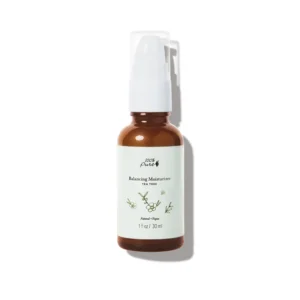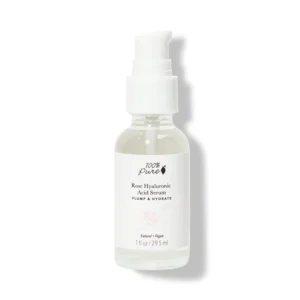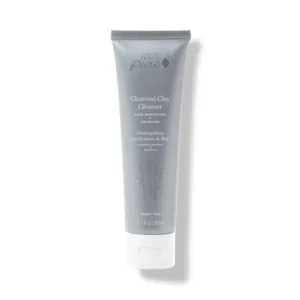Diverse Skin, One Goal

The clean beauty movement has swept through the skincare industry, prompting consumers to scrutinize ingredient lists and opt for products free from harmful chemicals and synthetic additives. But amidst the growing popularity of clean beauty, a pressing question arises: Is clean beauty suitable for all skin types? In this blog post, we’ll explore the compatibility of clean beauty products with various skin types and provide insights into how individuals can navigate this evolving landscape.
Before delving into its suitability for different skin types, let’s define what clean beauty entails. Clean beauty refers to skincare and cosmetic products formulated without potentially harmful ingredients such as parabens, sulfates, phthalates, and synthetic fragrances. Instead, these products prioritize natural, non-toxic, and sustainably sourced ingredients, aiming to promote healthier skin without compromising on efficacy.
Skin types vary widely among individuals, ranging from oily and acne-prone to dry, sensitive, combination, and everything in between. Each skin type comes with its unique characteristics, challenges, and needs, making it essential to consider these factors when selecting skincare products, including those labeled as clean beauty.
Clean Beauty and Oily/Acne-Prone Skin
For individuals with oily or acne-prone skin, clean beauty products can offer several benefits. Many conventional skincare products targeted towards oily or acne-prone skin contain harsh ingredients that can strip the skin of its natural oils and exacerbate breakouts. Clean beauty alternatives, on the other hand, often feature lightweight, non-comedogenic formulations that help balance oil production without clogging pores or causing further irritation. Ingredients like salicylic acid, tea tree oil, and witch hazel, commonly found in clean beauty products, can help regulate sebum production and target blemishes effectively.
Tea Tree Balancing Moisturizer

Clean Beauty and Dry/Sensitive Skin
Dry and sensitive skin types require gentle, hydrating formulations that soothe irritation and replenish moisture without causing further dryness or sensitivity. Clean beauty products, particularly those enriched with nourishing botanicals, antioxidants, and hydrating ingredients, can be well-suited for individuals with dry or sensitive skin. Ingredients like hyaluronic acid, glycerin, shea butter, and aloe vera can provide intense hydration and relieve discomfort associated with dryness and sensitivity. Additionally, clean beauty products formulated without synthetic fragrances and harsh chemicals are less likely to trigger adverse reactions in sensitive skin types, making them a preferable choice for those prone to irritation.

Clean Beauty and Combination Skin
Combination skin presents a unique challenge, as it combines elements of both oily and dry skin types. Individuals with combination skin may experience oiliness in the T-zone (forehead, nose, and chin) and dryness in other areas of the face. Clean beauty products formulated for combination skin typically aim to balance oil production while providing lightweight hydration to dry areas. Look for products with mattifying ingredients like kaolin clay or charcoal to absorb excess oil in the T-zone, coupled with hydrating ingredients like hyaluronic acid or jojoba oil to moisturize drier areas.

Tailoring Clean Beauty Products to Your Skin’s Needs
While clean beauty products can offer benefits for a wide range of skin types, it’s essential to choose products that address your specific concerns and preferences. Consider factors such as your skin type, concerns (e.g., acne, dryness, sensitivity), climate, and lifestyle when selecting clean beauty products for your skincare routine.
When incorporating new skincare products, including clean beauty products, into your routine, it’s crucial to patch test them first to assess their compatibility with your skin. Apply a small amount of the product to a discreet area of your skin (such as the inner forearm or behind the ear) and monitor for any signs of irritation or adverse reactions over 24-48 hours. If no adverse reactions occur, you can gradually introduce the product into your skincare regimen and observe how your skin responds over time.
Consulting with a Skincare Professional
If you’re uncertain about which clean beauty products are best suited for your skin type or if you have specific skin concerns, consider consulting with a skincare professional or dermatologist. They can assess your skin’s needs, recommend suitable products, and provide personalized skincare advice tailored to your individual requirements.
In conclusion, clean beauty products can be suitable for a wide range of skin types, including oily, acne-prone, dry, sensitive, and combination skin. By prioritizing natural, non-toxic ingredients and avoiding harsh chemicals and synthetic additives, clean beauty products offer benefits such as improved skin health, reduced risk of irritation, and compatibility with diverse skincare needs. However, it’s essential to choose clean beauty products thoughtfully, considering factors such as your skin type, concerns, and preferences, and to patch test new products before incorporating them into your routine. With the right approach and selection of clean beauty products, you can nurture your skin effectively while supporting brands that prioritize transparency, sustainability, and integrity.




